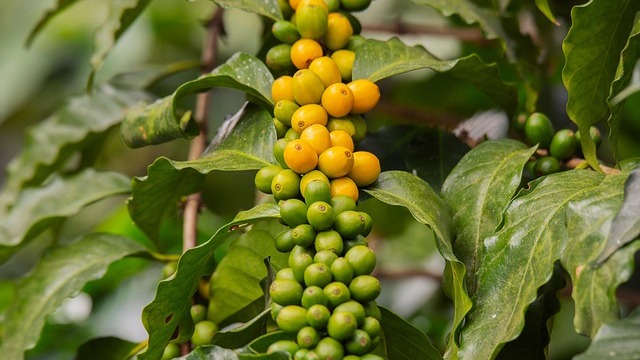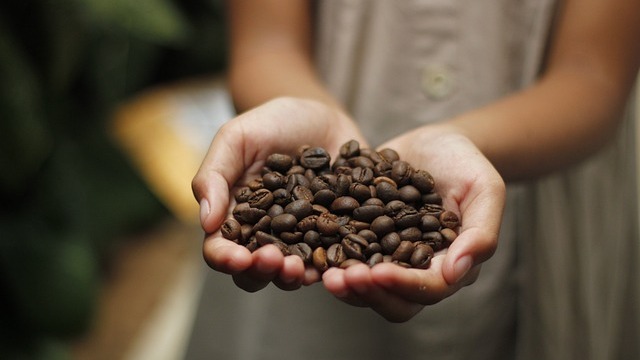Kikopo: The Ancient Ugandan Coffee Ceremony You've Never Heard Of

Discovering Uganda's Hidden Coffee Ritual
When most coffee enthusiasts discuss traditional coffee ceremonies, Ethiopia's elaborate ritual often dominates the conversation. Yet just across the border, Uganda's own rich coffee tradition, the "Kikopo" ceremony, remains largely unknown to the outside world despite its central role in community life for centuries.
As we at Sayun Coffee work to share Uganda's exceptional beans with the world, we believe understanding this traditional ceremony offers profound insight into why coffee holds such deep cultural significance in our country.
What is Kikopo?
Kikopo (pronounced kee-KO-po) is a traditional Ugandan coffee ceremony practiced primarily among communities in eastern Uganda, particularly the Bagisu people who live on Mt. Elgon's slopes. Unlike modern brewing methods focused on efficiency, Kikopo is deliberately unhurried, a social ritual that brings people together, celebrates important moments, and honors guests.
The name "Kikopo" derives from the sound made when roasted coffee beans are ground in a wooden mortar, "ko-po, ko-po, ko-po", a rhythmic soundtrack that signals to neighbors that coffee and conversation will soon be shared.
The Cultural Significance of Coffee in Uganda

Long before coffee became a global commodity, it held deep cultural significance in Uganda—particularly in the eastern and central regions where coffee trees have grown wild for centuries.
Coffee as Connection to Ancestors
Among many Ugandan communities, coffee trees are planted to mark important family events—births, marriages, and sometimes even deaths. These trees become living connections to family history, with some families maintaining coffee trees planted by great-grandparents.
Coffee as Hospitality
Offering coffee to guests has long been considered among the highest expressions of Ugandan hospitality. The Luganda saying "Emwanyi teriimu bukodo" loosely translates to "There is no stinginess in coffee"—meaning that coffee should be generously shared with all visitors.
Coffee in Traditional Medicine
Before becoming primarily a beverage, coffee cherries and leaves were used in traditional Ugandan medicine for various purposes—from creating poultices for wounds to brewing teas for digestive issues.
The Kikopo Ceremony: Step by Step

The Kikopo ceremony varies slightly between different Ugandan communities, but the core elements remain consistent—a multi-sensory experience that engages participants completely.
Preparation and Materials
Traditional implements for Kikopo include:
Luseke: A shallow pan made from clay or iron for roasting coffee beans
Kindu: Wooden mortar used for grinding
Kinu: Wooden pestle used with the mortar
Kibindi: Small clay pots for brewing and serving
Biseke: Small woven baskets for serving roasted coffee beans
The Ceremonial Process
Selecting and Sorting: The ceremony begins with the selection of dried coffee cherries, which are meticulously sorted by hand to remove any defective beans.
Roasting (Okwooka): The hostess roasts the dried coffee cherries in the Luseke over an open fire. Unlike modern roasting aimed at consistent color, traditional roasting creates varied degrees of roast, from light to dark. The roasting process fills the air with rich, smoky aromas, drawing participants deeper into the experience.
Husking: Once roasted, the coffee cherries are gently pounded to remove the dried husks, revealing the beans inside.
Grinding (Okusekula): The roasted beans are placed in the wooden mortar (Kindu) and ground with the wooden pestle (Kinu). This rhythmic, communal activity often becomes musical, with participants creating patterns of sound as they take turns grinding.
Brewing: The freshly ground coffee is added to boiling water in clay pots. Traditional brewing involves multiple infusions, allowing the grounds to settle between each pour rather than filtering them out.
-
Serving and Adding Flavors: Unlike modern coffee often consumed with milk and sugar, traditional Kikopo might be flavored with:
Omulali: Local ginger
Obugaga: Rock salt from Lake Katwe
Obushera: Fermented millet when available
Consumption and Conversation: The coffee is sipped slowly from small cups while participants engage in conversation, often about community matters, family events, or problem-solving. Unlike our modern rushed coffee breaks, a traditional Kikopo ceremony might last several hours.
Beyond the Cup: The Social Purpose of Kikopo

The Kikopo ceremony serves purposes far beyond simple refreshment:
Conflict Resolution
Many communities used the Kikopo ceremony as a space for mediating disputes. The shared experience of preparing and consuming coffee created a neutral ground where problems could be discussed calmly.
Knowledge Transfer
The ceremonial space allowed elders to share stories, proverbs, and traditional knowledge with younger generations, an oral tradition kept alive through these regular gatherings.
Life Milestones
Special variations of the Kikopo ceremony mark significant life events:
Mweso: The coffee ceremony performed during marriage negotiations
Lukolo: The ceremony performed to welcome new mothers back into community life
Lufu: The ceremony performed during funeral proceedings
Kikopo in Modern Uganda: A Fading Tradition

Like many traditional practices worldwide, the full Kikopo ceremony has become increasingly rare in contemporary Uganda. Several factors have contributed to its decline:
Time Constraints
The lengthy nature of the traditional ceremony conflicts with modern, fast-paced lifestyles.
Westernized Coffee Culture
The influence of Western-style café culture, especially in urban areas, has replaced traditional preparation methods.
Commercial Production Focus
As Uganda became a major coffee exporter, emphasis shifted from ceremonial consumption to commercial production.
Generational Knowledge Gaps
Many younger Ugandans have never experienced a traditional ceremony, breaking the chain of cultural transmission.
Preserving Kikopo for Future Generations

At Sayun Coffee, we believe Uganda's coffee traditions are worth preserving alongside our drive for quality and sustainability. That's why we're supporting several initiatives:
Cultural Documentation
We're working with cultural anthropologists to record the variations of Kikopo across different Ugandan communities, preserving this knowledge for future generations.
Community Workshops
In coffee-growing regions, we sponsor workshops where elders teach younger community members the traditional ceremony.
Modern Adaptations
We're exploring how elements of Kikopo can be adapted for contemporary life without losing their cultural significance.
Bringing Kikopo Spirit to Your Sayun Coffee Experience
[IMAGE: Modern interpretation of Kikopo elements in a home setting]
While the full traditional ceremony may not fit into modern life, we encourage our customers to incorporate elements of Kikopo's mindfulness and community:
Create Your Own Ritual
Set aside unhurried time to prepare and enjoy your Sayun Coffee, focusing fully on the experience.
Engage All Senses
Notice the sounds of brewing, the aromas that develop, the visual transformation from bean to cup.
Share the Experience
Invite friends or family to join you in coffee preparation and enjoyment, making it a social rather than solitary activity.
Practice Gratitude
Take a moment to appreciate the journey your coffee has made from the hands of Ugandan farmers to your cup.
By incorporating these elements, you connect with Uganda's rich coffee heritage even from thousands of miles away.
We invite you to
Connect With Uganda's Coffee Heritage
Want to learn more about the rich cultural traditions behind your Sayun Coffee? Subscribe to our newsletter for monthly insights into Ugandan coffee heritage, exclusive recipes, and special offers on our single-origin coffees.
Join Our Coffee Circle ← Subscribe today
 Add Row
Add Row  Add
Add 




Write A Comment